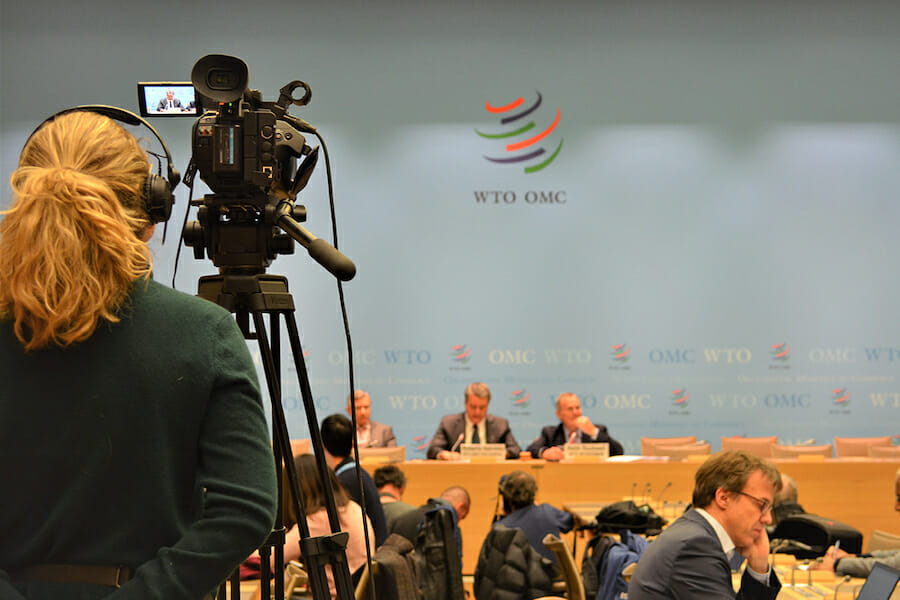
For the WTO, the Most Radical Reform Would be Modesty
On December 11, 2019, the World Trade Organization lost the ability to settle trade disputes. Successive U.S. administrations had complained about “judicial activism” under the Dispute Settlement Understanding in the WTO treaty but the complaints were ignored. The Trump administration, however, forced the issue by shutting down the Appellate Body, which finalizes cases and issues decisions on trade disputes that are binding on WTO member states. The U.S. Trade Representative did this by refusing to agree to the appointment of new members to the Appellate Body, which now has only one remaining member and is no longer able to form the three-person panels needed to hear appeals.
Since its creation in 1995, the Appellate Body ruled on matters that were not clearly delineated in various trade agreements, often at the expense of established U.S. trade practices. Such practices included safeguards to offer temporary protection to vulnerable industries, U.S. tax policies toward exports, and the formula used in calculating dumping margins.
The various trade agreements were largely silent on these points, but the Appellate Body found language that it claimed addressed the issues. In so doing, the Body effectively arrogated to itself the right to make new law and to impose on the losing party obligations to which it had never agreed and, in some cases, had rejected during trade negotiations.
This led to the recent situation of some countries seeking to gain advantages they could not get through negotiations by suing with the belief that the Appellate Body would grant a benefit through an Appellate Body decision. This dynamic is said to have contributed to the breakdown of global trade negotiations known as the Doha Round.
The United States is not alone in objecting to the excesses of the Appellate Body. But the U.S. is alone when it comes to bringing the process to a standstill. Several other WTO members – notably the EU, Canada, and Norway – have sought to create an alternative to the Appellate Body to handle disputes. However, the U.S. representative to the WTO warned that, if the Body did so, they would not be able to use U.S. funds to subsidize such a rump operation.
Notwithstanding U.S. frustration with the dispute-resolution process and with the fact that it has lost many cases when it was the defendant, the United States has done well at the Appellate Body, winning 91 percent of the cases where it was the plaintiff.
Few doubt that the WTO’s rules-based trading system has facilitated the growth of international trade and economic development that lifted millions out of poverty. Since it was founded in 1994, international trade has grown from about $4 trillion to almost $18 trillion in 2017.
But for a rules-based system to continue to work, there must be a mechanism to enforce the rules. There is an effort underway to reform the Appellate Body being led by New Zealand’s Ambassador to the WTO. His proposals are all highly technical and, indeed, laudable but they stop short of addressing the problem of judicial overreach.
This issue will not be settled quickly, nor will it be settled at the level where it is now being discussed – the legal committee. Rather, it is likely to be the number one issue on the table at the Ministerial Session set for June in Almaty, Kazakhstan. To date, the United States has refused to say what reforms will be needed in order to reconstitute the Appellate Body.
The U.S. delegation should demand more than technical reforms at the Almaty meeting. It should propose a truly radical reform by insisting on a statement of principles that will directly address judicial overreach by demanding judicial modesty. In cases where a country can show that it had rejected a particular interpretation of a treaty when the pact was negotiated, the Appellate Body must accept that it cannot impose a contrary ruling on the country in adjudicating a dispute. In fact, all matters not addressed in a trade agreement should be declared “Non-Justiciable” and, therefore, an issue on which the Appellate Body cannot rule.

